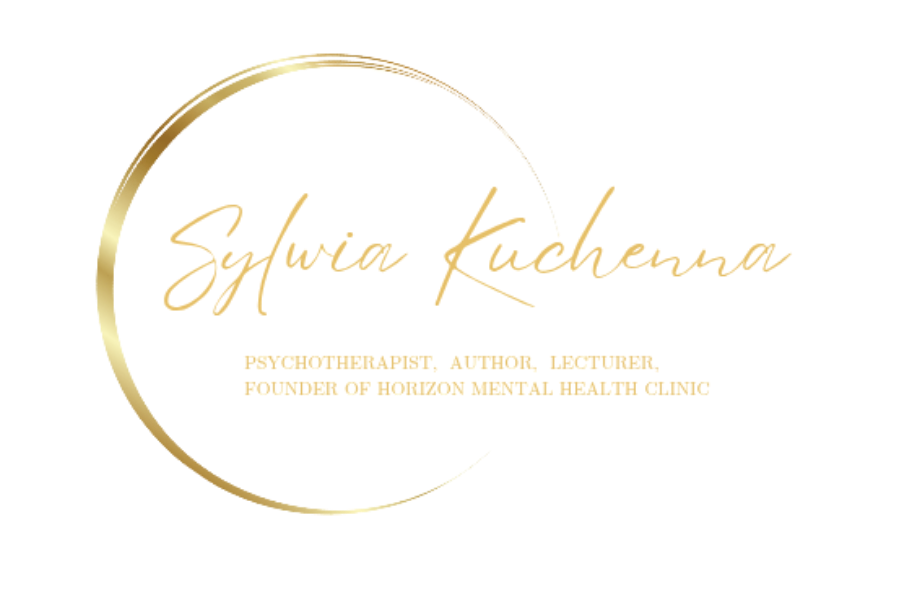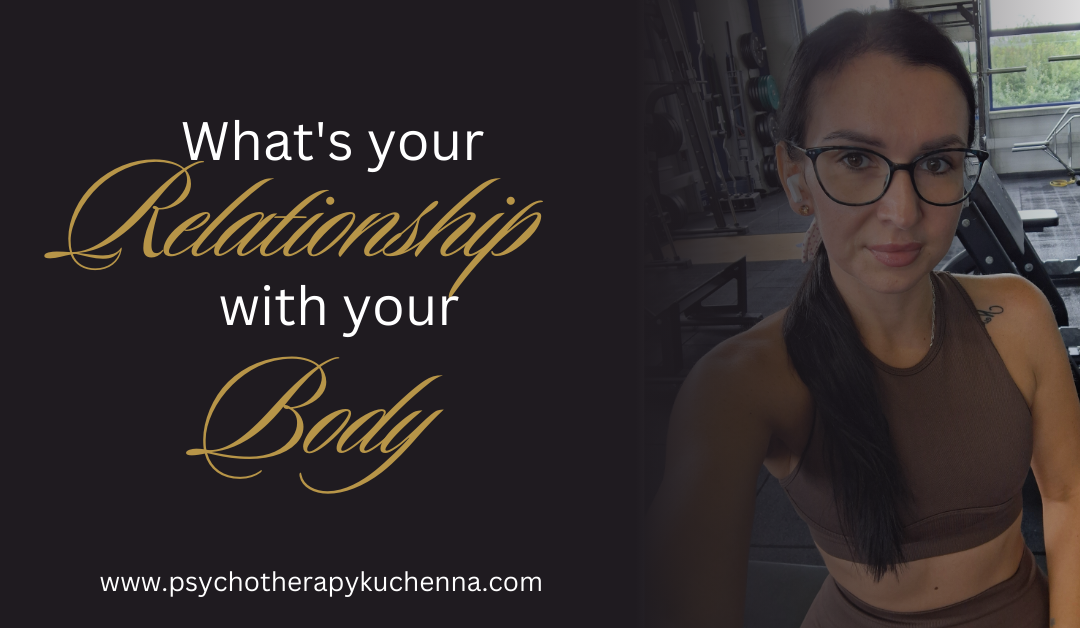Not long ago, I ran a simple poll on my Instagram story, asking people how they felt about their relationship with their body. The results were striking:
- Great, I totally accept and respect it – 5%
- No relationship – 18%
- I don’t know, I don’t pay attention – 12%
- Not too bad, but needs improvement – 64%
The numbers tell a very human story: the majority of us admit our relationship with our body “needs improvement.” Very few of us truly accept, respect, and love it. And yet, our body is the one companion that never abandons us. It is always working, always trying to protect and sustain us, even when we ignore or mistreat it.
For many years, I too lived in this disconnection. I was deeply committed to therapy and personal growth, working through childhood trauma, family dynamics, and old programming. Yet I did very little work with my actual body. It wasn’t until a few years ago, when my body forced me to stop ignoring it, that I began to understand just how much wisdom and memory it carries.
The Body Remembers What the Mind Forgets
Modern neuroscience and somatic psychology confirm something ancient traditions always knew: the body stores emotions, experiences, and trauma. While the mind may forget, the body remembers.
Dr. Stephen Porges’ Polyvagal Theory explains how our nervous system responds to safety and danger. Trauma can lock us into survival modes—fight, flight, or freeze—even when the threat has long passed. Dr. Peter Levine’s Somatic Experiencing builds on this, showing that trauma lingers because the body never had the chance to complete its natural survival response. The trembling, shaking, or release we sometimes experience isn’t weakness—it’s the nervous system doing the work it was never allowed to finish.
Even biology supports this wisdom. Through epigenetics, we now know trauma can alter gene expression and even pass through generations. In other words, our body carries not just our story, but often the stories of those who came before us.
And then there is the heart. Research into heart coherence has revealed that the heart has its own network of neurons—a “heart brain.” It doesn’t just pump blood; it stores memory, influences emotions, and communicates constantly with the brain. When our heart rhythm is stable and balanced, our entire mental and emotional state improves.
The message is clear: our body is not just a machine. It is an intelligent system, holding memory, meaning, and healing potential.
Ancient Wisdom: Chinese Medicine and the Emotions
Interestingly, what neuroscience and somatic psychology are discovering today has long been part of Traditional Chinese Medicine (TCM). In Chinese theory, each organ is connected not just to a physical function but also to an emotional landscape:
- Liver → Anger and frustration
- Lungs → Grief and sadness
- Kidneys → Fear
- Heart → Joy (or lack of joy when imbalanced)
- Spleen → Worry, overthinking, rumination
When an emotion is unprocessed or suppressed, it doesn’t disappear—it manifests through the corresponding organ system. Chronic grief, for instance, can weaken the lungs, while unresolved anger may show up as liver tension or digestive issues.
This mirrors what we experience in modern trauma work: emotions live in the body. But Chinese medicine takes it further, teaching that healing requires balance—harmonizing body, emotions, and energy. In this way, illness is not seen as an enemy but as a messenger, a call to realign.
Developmental Trauma and the First Disconnection
So why do so many of us feel estranged from our body? One reason lies in developmental trauma. As children, many of us learned to abandon our own feelings and needs in order to survive. We became experts at reading our parents, siblings, or teachers, focusing outward to feel safe.
This is often the first traumatic lesson: that our safety depends on ignoring ourselves. Over time, this survival strategy creates distance from our own body. We stop listening to its signals and treat it as something to control, demand from, or silence.
But the body never abandons us. It fights for us until it can’t anymore. And if we refuse to listen, it finds ways to make us stop—through illness, exhaustion, or breakdowns.
Fascia: The Web That Holds Our Stories
One of the most fascinating discoveries in recent years is the role of fascia—the connective tissue that wraps around our muscles, organs, and bones. Fascia is alive with nerves, constantly sensing and communicating. Stress and trauma can literally become “stuck” in these tissues, showing up as pain, stiffness, or restriction.
At the Human Garage event in Dublin, where I experienced fascia-based trauma release, I saw how powerful this is. People’s bodies would tremble, release, and shift as the fascia was worked on. It wasn’t just physical—it was emotional, spiritual. It was the body speaking its truth.
TRE: Learning to Let the Guard Down
Another profound practice for me has been TRE (Tension & Trauma Release Exercises). These simple movements trigger the body’s natural shaking response, allowing the nervous system to discharge stress.
What I discovered through TRE is how tightly my body holds on. It rarely lets itself relax fully, rarely feels free enough to be careless. It’s as though it doesn’t have permission to put the guard down—a reflection of old traumas and lack of trust.
Through TRE, I’m slowly teaching my body it’s safe to release, safe to trust again. It has become a conversation rather than a battle. I no longer try to control or silence my body—I’m learning to work with it.
Everyday Communication: Food, Cycles, and Movement
One of the clearest ways the body communicates with us is through food. A few years ago, I suddenly developed a strong rejection of meat. It wasn’t a conscious decision. Each time I tried to eat it, my body resisted, almost refusing to take it in. I didn’t fight this—I listened. Over months, meat disappeared from my diet naturally, and I felt better than ever. This was my body’s way of guiding me toward what it needed.
For women, the menstrual cycle is another profound way the body communicates. These days, many rely on apps and calendars to track their cycle. But I have never needed them. My body keeps its own rhythm, and I listen. I know exactly when I am ovulating and when my period will begin—often down to the exact moment. I don’t prepare with an app because my body prepares me. Each month, it tells me what I need to know.
Exercise is another example. Too often, we treat workouts as punishment or control. But movement is supposed to be a conversation. If we listen closely, our muscles, breath, and energy guide us, telling us when to push and when to rest. Movement becomes healing, not harm.
When the Body Speaks Louder Than Words
There have been moments when my body communicated in ways I couldn’t ignore.
At a business event in London, during a meditation connecting with the sacral chakra (linked to creativity, sexuality, and inner power), I suddenly became violently sick. I thought it was food poisoning, but deep down I knew it was something older—my body releasing buried sexual trauma.
Another time, during a romantic evening with my husband, my legs simply stopped working. I couldn’t walk. By the next day, I was fine. This was my body demanding that I stop ignoring what it had been carrying for me.
These experiences taught me that the body will always find a way to speak. If we don’t listen gently, it will eventually shout.
Respecting the Body
So how do we heal this forgotten relationship? It begins with respect.
- Start listening. Pause throughout the day and ask: What does my body need right now?
- Keep promises. If you tell your body you’ll rest after three days of hard work, keep that promise. Otherwise, it will force you to.
- Practice embodiment. Breathwork, TRE, somatic therapy, fascia release, and mindful movement all help reconnect you to your body.
- Learn from ancient wisdom. Notice how both modern science and Chinese medicine point to the same truth: your body and emotions are inseparable.
- Shift perspective. Stop demanding that your body look or perform a certain way. Start honoring it as the vessel of your life.
Your body is not weak for being submissive. It is incredibly resilient, endlessly adaptable, and astonishingly loyal. It has carried you through every single moment of your life.
It is the one relationship you cannot walk away from.
The question is: will you wait until your body forces you to listen—or will you begin now, with respect, curiosity, and love?
Your therapist,
Sylwia

